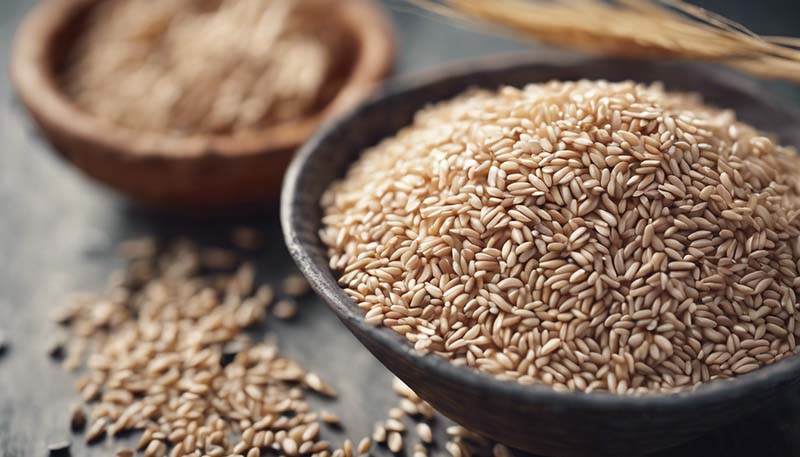The Impact of Diet on Thyroid Health
The thyroid gland is a small butterfly-shaped gland located in the front of the neck. It plays a critical role in regulating the body's metabolism, growth, and development by producing thyroid hormones, primarily thyroxine (T4) and a smaller amount of triiodothyronine (T3). However, the health of the thyroid gland can be significantly influenced by diet. This article explores the impact of diet on thyroid health, the nutrients that are essential for thyroid function, and dietary practices that can either support or hinder thyroid health.
Understanding Thyroid Function
The thyroid gland uses iodine to produce thyroid hormones, which are crucial for maintaining a wide range of bodily functions, including heart rate, body temperature, muscle strength, and brain development in infants. When the thyroid is underactive, a condition known as hypothyroidism, it may produce too few hormones, leading to fatigue, weight gain, and depression. On the other hand, an overactive thyroid, or hyperthyroidism, occurs when the thyroid gland produces too many hormones, which can result in weight loss, anxiety, and a rapid heartbeat.
The Role of Iodine
Iodine is the most critical nutrient for thyroid health. It is required for the synthesis of thyroid hormones. A deficiency in iodine can lead to an enlarged thyroid (goiter) and may cause hypothyroidism, while an excess can lead to hyperthyroidism. Good sources of iodine include seafood, iodized salt, dairy products, and some fruits and vegetables.
Other Nutrients Essential for Thyroid Health
- Selenium: Selenium is necessary for the conversion of T4 to T3, the active form of thyroid hormone. Brazil nuts are a rich source of selenium.
- Zinc: Zinc is important for the synthesis and metabolism of thyroid hormones. Oysters, beef, and pumpkin seeds are good dietary sources of zinc.
- Iron: Iron deficiency can interfere with thyroid function and the production of thyroid hormones. Red meat, poultry, and fortified cereals are good sources of iron.
- Vitamin D: Vitamin D may play a role in regulating the immune system and could be associated with thyroid autoimmunity. Exposure to sunlight and consuming fatty fish, fortified dairy, and egg yolks can help maintain adequate vitamin D levels.
- Tyrosine: This amino acid is a precursor to thyroid hormones and is found in foods like chicken, turkey, and soy products.
Dietary Practices Supporting Thyroid Health
A balanced diet that includes a variety of nutrient-rich foods can support thyroid health. Here are some dietary practices that can be beneficial:
- Eat a variety of fruits and vegetables: They provide essential vitamins and minerals, including antioxidants that help protect the thyroid gland from oxidative stress.
- Include lean proteins: Fish, poultry, legumes, and nuts provide the amino acid tyrosine, which is necessary for thyroid hormone production.
- Choose whole grains: They can provide fiber, which aids in the absorption of nutrients and supports overall health.
- Moderate intake of healthy fats: Sources like avocados, olive oil, and fatty fish provide essential fatty acids that help with the absorption of fat-soluble vitamins.
- Stay hydrated: Water is crucial for all bodily functions, including the production and metabolism of thyroid hormones.
Dietary Practices That May Hinder Thyroid Health
Certain dietary practices can interfere with thyroid function:
- Excessive soy intake: Soy contains isoflavones, which can interfere with thyroid hormone function in some individuals.
- Glucosinolates in cruciferous vegetables: While these vegetables are healthy, they can interfere with iodine uptake if consumed in large quantities and without a source of iodine.
- Avoiding iodine: While it's important not to overconsume iodine, avoiding it can lead to deficiency and negatively affect thyroid function.
- Excessive intake of raw kale, spinach, and sweet potatoes: These foods contain compounds that can interfere with thyroid function if consumed in large amounts without cooking.
Conclusion
A balanced diet rich in essential nutrients is vital for maintaining thyroid health. While certain foods can support thyroid function, it's also important to be aware of dietary practices that may interfere with the gland's ability to produce and regulate thyroid hormones. If you suspect you have a thyroid issue, it's important to consult with a healthcare professional for a proper diagnosis and treatment plan.






























Join the discussion